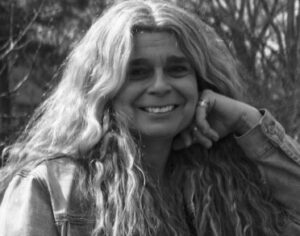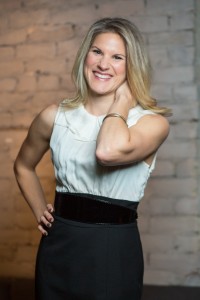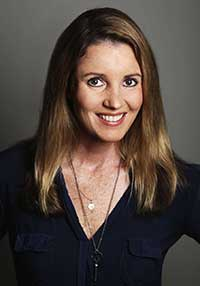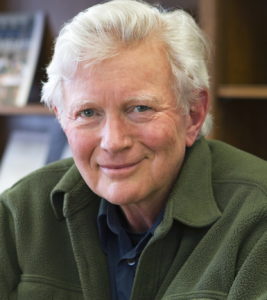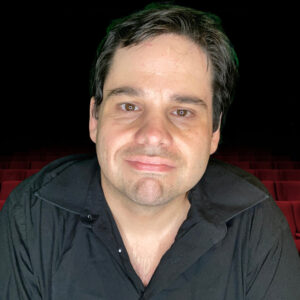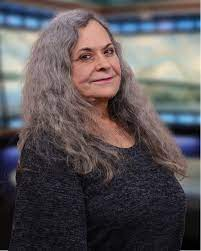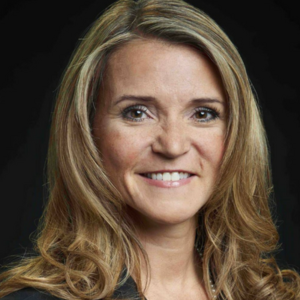142 – Perspectives on Heartbreak with Laura Pratt

Laura Pratt is a journalist, writer, and editor. Her second book, Heartbroken: Field Notes on a Constant Condition, was published in early 2023 by Penguin Random House Canada.
Host, Dr. Marcia Sirota gets into it — with experts and regular folks — about the heavy stuff that gets in the way of what we want. Heavy stuff like addiction and mental health, isolation, and loneliness, difficult family and work relationships and the importance of self-care.
Dr. Marcia‘s approach is clear, human and accessible, which helps listeners turn their emotional shit into fertilizer.
Laura Pratt is a journalist, writer, and editor. Her second book, Heartbroken: Field Notes on a Constant Condition, was published in early 2023 by Penguin Random House Canada. She has written for numerous Canadian magazines and her articles have appeared in Canadian Living, Toronto Life, Maclean’s, and Chatelaine. Her first memoir, The Fleeting Years, was published in 2004. She is a 2020 graduate of the University of King’s College’s creative nonfiction MFA. She won an honourable mention in Prairie Fire’s 2020 CNF contest and was shortlisted for The Fiddlehead’s 2019 CNF contest. She lives in Toronto and has served as a judge at the National Magazine Awards for several years.
Follow Laura on:
00:01:57 Book explores universal, personal subject in depth.
00:03:09 Memoir exploring heartbreak and personal experiences.
00:06:22 Heartbreak research reveals surprising physiological and historical depths.
00:12:20 Death and dying, long journey of healing.
00:17:47 Nostalgic index and genetic predisposition to pain.
00:21:12 Some people turn heartbreak into creativity. Others don’t recover from heartbreak easily.
00:25:06 Memory and music shape our emotions and perceptions.
00:29:10 Last chapters: faith, hope, value in heartbreak.
00:34:12 Finding strength in life’s ups and downs.
00:38:08 Be kind, compassionate, and gentle with yourself.
00:39:26 Dr. Marcia Sirota, podcast review, newsletter, referrals
The Importance of Exploring the Universal: “And given that it is such a universal experience, they were surprised, and so am I. And others have expressed that since, that it is unusual, since it’s such a big part of being alive, that nobody’s ever set in to really try to understand it.”
— Laura [00:01:57 → 00:03:03]
Heartbreak Memoir: “I was attracted as a writer to the idea of tackling such a big, juicy subject and as a journalist of conducting research into this subject of which there is no shortage.”
— Laura [00:03:09 → 00:04:35]
The Surprising Depth of Heartbreak: “I guess I’d say the first thing I learned was how wide ranging the experience of heartbreak is on our lives… And the fact that the discovery that our emotional pathways follow the same neural network as our physical experiences do was really eye-opening to me… physiologically, the pain I’m experiencing is legitimate.”— Laura [00:06:22 → 00:10:18]
The Enduring Power of Love: “If you love somebody, you always love them. It doesn’t make sense that you would get over it quickly.”
— Laura [00:12:20 → 00:15:26]
The Influence of Nostalgia and Genetic Predispositions on Heartbreak: “I feel like I have nostalgia built into me every passing moment I mourn… I wept for being six when I was seven, and then later on in my life really struggled to get over a lost love. It’s not that far fetched because I think it’s sort of built in… Is there reason to believe that some people are predisposed to suffer emotional pain worse than others?… Maybe, to explain the endurance of my pain and my heartbreak.”
— Laura [00:17:47 → 00:20:50]
Heartbreak and Creativity: “If you can make a virtue of being so inside your head by kind of exploiting it to creative purposes…sometimes they were hard lives and they featured a lot of heartbreak in different forms.”
— Laura [00:21:12 → 00:24:02]
The Power of Memory: “Every time we go back and retrieve a memory, we change it a little bit…we no longer have any pure memories. Our pure memories are, in fact, all…We are turning them into something that they never were.”
— Laura [00:25:06 → 00:28:33]
The Value of Heartbreak: “And it’s to them that I’m mostly talking anyway. But if you don’t get there, you can certainly get to a place where you go, who. Is it Tennyson? Is it Tennyson who said, it’s better to have loved and lost than never to have loved? You can get there. You can believe that.”
— Laura [00:29:10 → 00:32:13]
The Power of Appreciating Life’s Ups and Downs: “I can come out the other side… because I can see that the down is as much a part of life as the up.”
— Laura [00:34:12 → 00:35:28]
Marcia [00:00:00]:
Ruthless Compassion is a podcast about how you can turn your emotional shit into fertilizer for success and see your darkest moments as opportunities to transform into a powerful kindness warrior. If you enjoy this podcast, please leave a review wherever you listen. Welcome Laura Pratt to the Ruthless Compassion podcast.
Laura [00:00:22]:
Thank you.
Marcia [00:00:23]:
It’s great to have you. You like I was saying before we formally started recording that I’ve been reading your book, and it’s very interesting. And before we get right into that, I thought maybe you could tell the listeners a little bit about who you are and what you do.
Laura [00:00:36]:
I would be delighted to. So my name is Laura Pratt, and I never know really what to say. For 100 years, I’ve said I am a journalist, and I suppose I still will say that. But truth to tell, there’s not a lot of journalism out there anymore, especially not for freelance magazine journalists, which is how I made my living. I’ve since moved, as so many erstwhile journalists have, to another realm and spend most of my time now as a book editor. And I edit manuscripts for a vanity press, so for self publishers. And most recently, I am an author, having written my memoir, which is what I’d love to talk to you about today. It’s called heartbroken field notes on a constant condition. And it came out a few months ago in January. It’s published by Penguin Random House Canada.
Marcia [00:01:35]:
Yeah, I actually found your book on a list of the best nonfiction books in Canada for 2023. And when I saw the title, I thought, wow, that’s a really interesting title, Heartbroken, because it’s not a book that I’ve seen before, really, in the popular market, scientific studies, but not right.
Laura [00:01:57]:
Not the personal piece in there. I wrote the book under the auspices of the University of Kings College’s Master of Fine Arts in Creative Nonfiction program, where it’s a two year program where instead of writing a master’s thesis, you write a book. And I remember when I started in there and in fact, was being evaluated for being part of the program, my mentors, some of the administrators of the program expressed surprise that nobody had ever, in fact, done a book like this, which is to say, a book that explores this incredibly universal and incredibly personal subject, but looks at it sort of as an experience and kind of tries to hold it accountable and understand what it’s all about. And given that it is such a universal experience, they were surprised, and so am I. And others have expressed that since, that it is unusual, since it’s such a big part of being alive, that nobody’s ever set in to really try to understand it. So that’s essentially what my book is, or seeks to do.
Marcia [00:03:03]:
So the main obvious question is why did you choose to write a book about your heartbreak?
Laura [00:03:09]:
Well, it is a book about my heartbreak, no question. It’s a memoir, though various folks along the way have expressed some there’s some challenge to knowing exactly what to describe it as, because memoir is not only what it is, as I said, it’s an exploration of the subject of the experience. So my story, which is the memoir piece, is the thread that runs throughout the book, and my experiences are the sort of jumping off points for deeper explorations of one or another aspects of heartbreak. But sorry, you asked me why did I choose to write about it? Well, I mean, because to me, as it’s not uncommon, I have experienced a heartbreak. And I was attracted as a writer to the idea of tackling such a big, juicy subject and as a journalist of conducting research into this subject of which there is no shortage. So I just thought it was the universe presenting this idea to me as something that was worth spending some time with and no regrets. It’s such a great topic to explore, even though, of course, it has its challenges when you’re writing about your own experience with it.
Marcia [00:04:35]:
For sure. I was just wondering, something just came to me because there have been times in my life where I’ve been very upset by some kind of bad experience, like a death of a loved one or something like that. And I’ve turned to creativity as a way of helping me get through the bad times. And I have always found that creativity is really helpful for me and also for many other people that I know in order to kind of help you move through a difficult time and feel better. I know you talk in your book about how grief can sometimes linger and that there’s no necessary endpoint, and I’m not using creativity for that reason. But I’m just wondering for you if you found that being creative helped you in any way, helped you your experience.
Laura [00:05:22]:
Absolutely. There’s no question that I used to balk at that people, when they asked me that question in the process of writing the book, like, oh, are you writing it for catharsis or is it a therapy, a kind of therapy for you? And I would bristle at that idea because it felt like they were suggesting that it was my intention in writing the book, which it never was. But after the fact, there’s no question that I can say that having explored it, sort of held it accountable and interrogated it to the floor has helped me feel better about it. So the creativity, the creative act of writing, has been a stalls and a bomb to the experience, for sure.
Marcia [00:06:11]:
Yeah. That’s wonderful. Well, so what did you learn about heartbreak when you wrote this book? What have you learned about it in your studies and in your reflection?
Laura [00:06:22]:
Yeah, well, I mean, I’ve learned an awful lot when I first began my research into the book. The first step in my process was I asked everybody I could. What kind of pieces do you see as being integral to the experience of heartbreak? In other words, what would a book about the subject be remiss in not including? And so in the end, people would tell me different things that really hit for them about heartbreak. And in the end, that collection became my chapter list. I guess I’d say the first thing I learned was how wide ranging the experience of heartbreak is on our lives. It’s not just something that happens and we drag our feet for a little while. It’s something that affects us physiologically. It’s something with historic and literary roots. It’s something that people there’s an awful lot of science around heartbreak and biology around heartbreak. And back in the day, the city of London in England used to keep a list of their weekly deaths, and it was everybody who had died that week in the city and assigned to each name was the cause of death. And I was going to say heartbreak was among them. Sometimes I get heartbreak and grief confused, mixed up, because I find they’re kind of synonymous, honestly, or at least as one is a subset of the other. But in this city of London death roles, grief was often counted as a reason for somebody’s death. That kind of thing was surprising to me. That’s something I learned was just how deep it goes. And the fact that the discovery that our emotional pathways follow the same neural network as our physical experiences do was really eye opening to me. So, in other words, if you stub your toe, the message to your brain is pain. You feel it, it hurts. Same thing. If somebody rejects you, if somebody breaks your heart, if somebody leaves you, you feel a pain. And I think one of the reasons that has risen to the top for me when people ask me what surprised you the most about your research into heartbreak is because I think that fact serves as a kind of comfort to people who’ve been through heartbreak, because they can say, hey, it’s not just me. And I’m not just blowing it out of proportion, and I’m not just being dramatic. In fact, physiologically, the pain I’m experiencing is legitimate. And so I like that fact for that reason. But that’s one among many discoveries I made in researching this subject because I am a journalist. The research piece was big for me. I enjoyed it very much, and I indulged it very much. There’s so much, I mean, poetry and historical accounts of heartbreak through the ages. There’s Egyptian hieroglyphics telling the story of heartbreak. Again, I think there’s comfort in that because the idea that, look, all these other people have been through it and they all survived, or maybe not all of them, truth to tell, but some of them survived. And I don’t know, it’s kind of like when you’re having a baby and you’re terrified of going into labor, but you look around and you say, well, all these other women got through it. I can, too. I find that the historical depth of experience for this subject is something that gives me comfort.
Marcia [00:10:18]:
Yeah, for sure. Was there anything that surprised you that really made you go when you were looking into the study of grief and bereavement and heartbreak?
Laura [00:10:31]:
Well, I came across early on in my research, I came across a statistic that I mean, on reflection, it’s not surprising at all, but just of the number of the percentage of humanity that has had their heart heartbroken. And I think it was I should have it in front of me, but I don’t I think it was 83%. So that’s I mean, it’s again, it’s not surprising because I do think pretty much being alive comes with a certain brush with heartbreak. But still, it’s a high number, and you don’t come across many statistics where it’s 83% fall on one side or the other. So to me, that was sort of proof of concept for my book. It kind of affirmed the rationale behind a book that would sit out there as a point of reference and relief for people who are going through it.
Marcia [00:11:27]:
For sure. You were writing in your book about how it can be problematic when so called experts tell you that there’s an endpoint to your grief and that you can get over it, and that if you just do these number of steps, then everything will be fine again. What can you say about that?
Laura [00:11:45]:
Well, I mean, what I can say about that is that’s, in fact, probably my biggest hope for my book, my biggest wish for the book, is that it finds an audience of people who are feeling under that same pressure, and it’s stupid to recover according to somebody else’s timeline. Back in the day, the psychologist who came up with the six stages of grief Kubler Ross. Kubler Ross.
Marcia [00:12:18]:
For death and dying.
Laura [00:12:20]:
Death and dying. On her deathbed, she recanted that because she recognized that it set people up for failure, arguably because it had as its endpoint this I think acceptance is the endpoint, and that was subsequently applied to different things, including heartbreak. And I think that it’s a tyranny, honestly. And she’s not alone in proposing that there’s a certain timetable that we need to abide in getting. I mean, and I know that I would find supporters for this point of view among people who are mourning the death of not of a romance, but of a love. A person who are also, no question, put under pressure to get on with it. And so it’s my long winded way of saying that, honestly, my greatest hope for this book is to demonstrate to other people out there who are suffering the pressures and the sort of feelings of guilt and like, they’re letting somebody down or that they’re somehow odd. Something’s wrong with them that it’s taking them so long to get over X or Y. I hope this book finds them and comforts them and says, you’re not alone because you’re just human. You’re just human. And all any of us is doing is just trying to get through whatever it is. And here’s my story. I’m coming out with my story and saying, you know, I actually am struggling with this and I haven’t gotten through it. The subtitle of my book is Field Notes on a Constant Condition. And the word constant was very intentional on my part because from the get go on this project, I always told whoever wanted to hear that I had no sense that it was going to I mean, it ends positively, I believe that. And it ends with hope, which is critical, I think. But I never suggest in anything, least of all my subtitle, that it does have a definitive closing period where you say that’s it. Yeah, I’m over that person, because I don’t think that’s real. I think if you love somebody, you always love them. I mean, things change, things happen, practical stuff, whatever. And so I’m not saying that the relationship necessarily endures, but to my way of thinking, if you love someone, you always do, and so you’re not going to get over them quickly. If it was something important to you, it doesn’t make sense that you would get over it quickly. So, yeah, I react to that. You can see my answer. I feel strongly about that. I don’t like people going, oh, you’re still thinking about him. Haven’t you moved on? Like, get over it? It really bothers me that because who are they to tell me or anyone who is any of us, to dictate to any other of us that this is the way you should be behaving, and this is how you should be recovering?
Marcia [00:15:26]:
Well, before we started, I was mentioning to you that after I started reading your book, the night after I started reading, I had a dream about my little Yorkshire terrier, Benny, who he passed away in 2016, so that’s quite a few years ago. And he was a dear, dear little dog. And I had this weird dream, which was very much like the dream you recount in your book and before I even got to that section. So that was interesting, where Benny had been away and then he was back, and I was so happy and I was so relieved, and I felt kind of bad for having lost him. How did I misplace him? And then he was back, but then I had a feeling that I might lose him again, and then I woke up and of course he was gone. And I felt such a pang and I realized that you don’t get over, you just find a way to build your life around it.
Marcia [00:16:18]:
Yeah. To integrate the experience into your life.
Laura [00:16:22]:
I talk about that in my chapter on grief, where I say the conventional way of thinking about grief was to draw a circle and fill it in with black marker all the way to the edges. And this is your grief. And the old way used to suggest that that circle of grief would shrink and over the passage of time, that black circle would get smaller and smaller. In fact, now the more enlightened way to think about it is that black circle all filled into the edges will always be there, but you will just build your life around it. And I think that makes a lot more sense because it doesn’t imagine this sort of magical day or moment where you go, oh poof, it’s gone. All the pain, all the memory, all the love doesn’t happen. It won’t happen.
Marcia [00:17:12]:
I haven’t read all the way to the end of the book, but do you talk about unresolved issues? Because I know that in a lot of our relationships we have regrets, we have guilt, we have shame, we have wishes that we had done things differently. And that can sometimes complicate our grief, right? If we have ambivalent feelings about our own behavior or about the person or the loved one, we’ve lost. Did you touch on that in your book? The kind of complicated emotions that affect how we are experiencing heartbreak?
Laura [00:17:47]:
Well, I mean, one area that I found fascinating that I stumbled upon was the idea of social scientists have identified something called a nostalgic index that in theory, each of us lives somewhere along with the idea that there are various measures that you can take of yourself to determine where you fall on the scale. And I think for me, I remember my parents on my 7th birthday. Remember they tell me that I wept because I was so sad that I was no longer six. I feel like I have nostalgia built into me every passing moment I mourn. And in fact, that is a type, right? That’s a personality type. And so I feel like that has some influence on the way I’ve experienced my heartbreak. Whereas somebody I mean, you can tell outside of the moments of crisis, you can tell if somebody might be prone to being to really struggling with emotional upset, given the way they respond to everyday things like given the way. I wept for being six when I was seven, and then later on in my life really struggled to get over a lost love. It’s not that far fetched because I think it’s sort of built in. Another thing that is along the same lines was the discovery that I think it’s understood. It was understood that people who have a certain genetic variant that predisposes them to feeling pain, physical pain, more profoundly if they have it’s called the GLL variant. But if they have this as part of their physical genetic makeup, I guess the idea is that if they stub their toe versus the next guy, they objectively feel it worse, harder, it hurts more. And so the social scientists said, well, wait a minute. If we know that if we know that people who carry this GLL variant suffer physical pain worse, and we also know that physical pain and emotional pain follow the same neural pathways, is there reason to believe that some people are predisposed to suffer emotional pain worse than others? And they found that, in fact, there is reason to believe that. There was tests on monkeys who, when they took their mothers away, they cried for longer and louder than the other monkeys, and it was because they had the GLL variant. So I mean, this kind of sort of scientific proof, again, I use as an alibi, maybe, to explain the endurance of my pain and my heartbreak. Those sorts of things, I think, are the things that are variables that play into how each individual experiences a heartbreak or probably anything else.
Marcia [00:20:51]:
Another thing you were writing in your book was that there are different ways that people express their heartbreak that might be surprising to someone on the other side, like getting angry and aggressive or becoming kind of apathetic. Can you say something about the different ways that we manifest our heartbreak?
Laura [00:21:12]:
Well, I mean, I think that for some people they turn in, and for some people, they turn out. And the people who turn in, I suppose it’s those folks who might draw on their creativity. If you can make a virtue of being so inside your head by kind of exploiting it to creative purposes, and there’s no shortage of stories of artists and poets, right? You look at the lives of some of the most prolific or most profound creative people out there, and you see that sometimes they were hard lives and they featured a lot of heartbreak in different forms. So there’s certainly an argument to be made for some people experiencing their heartbreak by sort of sharing it, like sort of spilling it all onto the paper in whatever form. And then there are some people who are this was something that Freud looked into in his work on melancholy and his identifying a class of people he called complicated grievers. And so complicated grievers, as you can imagine, are the ones at the far end of the scale who, if you look at a scale of how we respond to things, the majority of people well, at one end of the scale, about 10%, are what he called resilient grievers. And they grieve, no question. They go down, but then they spring up pretty reliably. And then most people, of course, are in the middle. And you could probably predict what they are. They’re regular, normal people. What you expect. They grieve a little, they come back in a reasonable period. But at the other end of the scale are the complicated grievers, and they’re the ones that they can suffer a heartbreak for ten years, 20 years, the rest of their life, they go down and they don’t necessarily come up again, obviously, ideally, they can still function in their lives. I think that’s a way that some people that it manifests for some people, it depends where you are on the scale. And again, those are probably markers out there that could suggest where you fall on that scale. If you just sort of reviewed your life and moments inside it where you experienced something of a cris or something of hard grief and see how and reflect on how quickly you recovered from it, that’s probably a pretty good indicator of where you fall on that scale if you typically behave in one way or another.
Marcia [00:24:02]:
Yeah, I’m just reminded of a book I read and I interviewed this person and I’m very sorry, I cannot remember their name, but the book is called The Grieving Brain. And in the book, she talks about how when you lose somebody, you have a mental map of the person and that person. You see them in your mental map. So when you are walking through your life and there’s this kind of void where they’re supposed to be, your brain can’t make sense of it’s. Like if you have a dining room table, they’re saying in their book and then you wake up in the middle of the night and you pass through the room to go to the washroom. You walk around where the dining room table was supposed to be, even if it’s no longer there, because your body is so used to that dining room table being in that place. And so the brain is saying, Tilt. This person is supposed to be there. It doesn’t make sense. I can’t compute this person is locked into my mental map. I don’t know what to do with the fact that my brain says one thing and my eyes see another thing.
Laura [00:25:06]:
That’s fascinating. And that sort of reminds me of one of my chapters, and the one that probably gave me the most work because it is such a rich subject, is memory. My chapter on memory. And of course, memory is essential to heartbreak. Memory is an essential component of heartbreak because if we couldn’t remember anything, we wouldn’t be heartbroken over any. We’d just skate through our life and never cast back and feel sad about it. And one of the things that I found interesting in that research was various, various studies that have determined that every time we go back and retrieve a memory, we change it a little bit. It’s almost like every time you take something out of the cupboard and use it, it becomes chipped, it gets worn, and when we put it back in, it’s a bit different. And so very quickly, this is a school of thought on a very complicated subject, but it makes sense that we no longer have any pure memories. Our pure memories are, in fact, all. C. S. Lewis, the author, describes it as one of those light snowfalls where the flakes just fall and lightly cover whatever it is, the bushes and the table outside. And when you go out and look in the morning, you can’t see the bush or the table anymore. You see the fine filter of snowflakes that cover them. And that’s how we treat our memories. Every time we take them out, we dust another layer of snow on them. And it’s our interpretations and it’s our wishes that we’re imposing on them and our thoughts. But at the end of the day, we are wrecking those memories. We are changing them. We are turning them into something that they never were. So that’s another as I said, that’s one of the subjects that fascinated me right from the get go in this book. But it really is a challenging there’s all sorts of books written just on the subject of memory, and my book looks at memory and heartbreak. Another one that’s equally captivating, I think, and interesting to everybody, is my chapter on music, because music is such a fundamental piece of our lives. I mean, all of our lives have a soundtrack and it’s easy. Music is one of the influences that skips over the sort of busy wiring of our brains and goes immediately to our emotions. So it’s not a long route that music has to travel before we’re feeling something. And Smell is the other one. Those are the two that are the most powerful sensory influences that really hit us. I reflect a lot on music and how a song can immediately deliver us back to a time and a place. And the question of whether songs are inherently sad or if songs are sad because we’ve imposed our own sadness on them is something that is sort of up for argument. But you can see both sides of them. Yeah.
Marcia [00:28:33]:
And even a happy song if it’s associated with a sad experience or with.
Laura [00:28:39]:
An experience that you yearn for.
Marcia [00:28:41]:
Yes, exactly. So it can be. I just remembered the name. It’s Mary Francis O’Connor who wrote the book the Grieving Brain.
Laura [00:28:48]:
Okay, that sounds interesting.
Marcia [00:28:50]:
Yeah, she’s a very good writer and I interviewed her on a previous podcast and yeah, it kind of dovetails into the work that you’ve been doing. There’s so many things to ask you about. But one of the things I wanted to ask you about before we wrap up is you said that the book ends with hope. So I just wanted to ask you how so how does it end? With hope?
Laura [00:29:10]:
Yeah, my last two chapters, suddenly it sounds like it gets religious and it doesn’t. But my last two chapters are Faith. Faith is the penultimate chapter. And Hope. Honestly, maybe I’ve got them mixed up, but the last two chapters are Hope and Faith. And the idea behind those is that while my story explores some of the more sort of academic aspects of heartbreak, it always has at its center my story and where it’s always told chronologically. It opens at the beginning of my heartbreak, and it ends some years later. And by that time, I have come to realize that the way to get on top of this is to identify some value in it, some value to it. I think that that’s critical, to be able to say that it was worth something, both the romance, the relationship, and importantly, the heartbreak that followed. Because if you can say it was worth something to me, it meant something to me. It changed me. It improved me. It enlightened me. If you can say that and mean it, then that’s the trick. And so that’s where I land at the end, because as I said to you, I never wanted to give anybody, myself included, the false impression that you wake up one day and you go, who. No, I’m good because I just don’t think you do. Or maybe some people do, but some people don’t. And it’s to them that I’m mostly talking anyway. But if you don’t get there, you can certainly get to a place where you go, who. Is it Tennyson? Is it Tennyson who said, it’s better to have loved and lost than never to have loved? You can get there. You can believe that. And I got there to be able to say what a boring life I would have had. Not only if I didn’t know him and have his love and our amazing experiences together as a couple. Not only would it be boring without that, but you know what? I never thought I’d say it, but it would be boring without having had the heartbreak to follow because that was an enormous experience in my life. It has been. It continues to be. It’s an enormous experience, and I like to think that it expanded. If each of us has a pathway that we’re walking along over the course of our lives and some have fairly narrow pathways that aren’t too rich in experience and others have really broad pathways because they’ve had the heights and the depths of what it is to be alive. Probably, in fact, all humans fall in the second category. But the trick is to acknowledge it. The trick is to recognize it and say, Whoa, I was really high. Now I’m really low. But look how broad my path of experience is.
Marcia [00:32:13]:
Yeah, I just saw a movie, a beautiful movie a little while ago called Living, and it’s a remake of a Japanese film called Ikuru made by, I think, Kurosawa. And this movie, Living was about the current one is about a British functionary, like a civil servant who just spends his days stamping papers and doing very little. And he’s completely shut down and completely sort of dead inside and just goes to work, comes home, has his dinner, reads the paper, goes to bed. It isn’t living. And then he gets this diagnosis of a terminal illness. And he has just a little while to live, and he comes to this awakening where he realizes that he better start living now. And he does. He lives very fully for the last while of his life, and he finds joy even though he knows he’s dying, because he’s finally living. So it’s like when you’re talking about expanding the path of your life and you’re really living, if you shut it down, if you try to avoid it, if you tell yourself it’s okay, then.
Laura [00:33:20]:
What a thin little experience of being alive you’ve had? Exactly. Yeah, I like that.
Marcia [00:33:25]:
Yeah. So you’re talking about this making meaning out of the experience. Right. When I think about what you’ve done, you found a way to be creative with this process, and you’ve also found a way to connect with other people, both in your circles, when you were asking them about their own experiences and with a wider audience for the readers of the book. So I think you got definitely an A plus when it comes to making meaning from your experience.
Laura [00:33:58]:
Thank you.
Marcia [00:34:00]:
Do you find that this has helped other people, like, just understanding that you can find meaning in these heartbreaks?
Laura [00:34:12]:
I think so. I hope so. I hope that people who have read my book have come away thinking, yeah, I can do this. I can get through this. I can come out the other side. And I can do it, in part because I can see the virtue of it, that I can see that the down is as much a part of life as the up. And without sounding like a greeting card, and it’s hard not to. Those greeting cards, some of them are pretty good. It’s just coming to appreciate all of your experience, the good and the bad, and you have to really take a step back, and you can’t do it. You can’t hold yourself to hitting that point. I sure didn’t hit that point at two weeks or two months or two years, but I got there in the end, and I feel like I’m honoring the relationship, which has always been important to me. I think that part of why I thought about it so much is because I thought it was worthy of my time and my energy. So I feel that I found a way to strike a balance between honoring it as I feel it deserves, but also making peace with what happened to it and living a full life, not only in spite of, but because of it.
Marcia [00:35:28]:
That’s wonderful. Did anybody who might have been kind of looking at you with your grieving process and going like, come on now, Laura, get on with it. Do you think that reading the book might have changed how they saw your experience? Was there anybody who was like, I don’t know.
Laura [00:35:46]:
I can’t think of anybody who’s come and said, look, I’m really sorry. I was always on your case, but it still could happen.
Marcia [00:35:56]:
Okay, I have one other question which you may or may not want to answer, and maybe it’s in the book, and I haven’t read there, but have you heard from your fellow your love since you wrote the book?
Laura [00:36:07]:
No. You have to read the book.
Marcia [00:36:08]:
Okay, I will read the book. Okay. We’ll keep that as a mystery.
Laura [00:36:13]:
Yeah, it’s a book that covers a lot of years. It ends with an epilogue, and you just don’t read the book.
Marcia [00:36:18]:
Oh, okay. I’m super excited then. Something for me and the listeners to learn. Well, it’s so wonderful talking to you today, Laura. It’s really such an important subject, and I love the idea of including all of our experiences. I don’t think about my dog on a daily basis. I loved him very much, but I think it’s so telling that I dreamed about him, that I was heartbroken and heartbroken and that it didn’t go away. It still me, too.
Laura [00:36:50]:
That’s what I say in the book. I think everything means something, because if everything doesn’t mean something, then nothing means anything. If you think about it, if you logic it out. So I think the fact that your dog visited you last night means something. You might not know what it means, but it means something. Yeah.
Marcia [00:37:05]:
And it was nice to see him again.
Laura [00:37:07]:
And there you go.
Marcia [00:37:09]:
Well, where can people find you if they’re interested in learning more about what you do and your writing?
Laura [00:37:15]:
Yeah, well, I mean, I have I have a website, an eponymous website, laurapratt.ca that you can visit, and of course, you can buy the book anywhere. Anywhere you can buy it. Name a big bookseller or a little bookseller you can find. It’s called Heartbroken, and it’s very widely available.
Marcia [00:37:35]:
It’s wonderful. Well, I recommend it. So far. I’m thoroughly enjoying it and also having to take a little moment periodically to kind of digest the emotions that it’s bringing up in me, because it’s bringing up a lot of surprising memories and emotions, which I think is really great, because that’s, I think, the best kind of book right when it’s touching.
Laura [00:37:56]:
Well, I’m glad to hear that. I’m glad to hear that. Thank you.
Marcia [00:37:58]:
Well, before we go, I thought maybe you could give the listeners a call to action, something that they might want to try, having listened to this conversation today.
Laura [00:38:08]:
Oh, man. Well, I guess I returned to my message that I feel the strongest about, which is to go easy on people, and that includes yourself. If you know people who are going through heartbreak or if you yourself are going through heartbreak, go easy. Don’t ask somebody to feel any other way than how they feel. Be generous, be humane, and recognize that everybody’s just doing the best they can and that we should just be kind to each other and compassionate and even again to ourselves. If you’re looking at yourself and you’re thinking what is wrong with me? I’ve been mourning this person for fill in the time, the days, the weeks, the months, the years. Nothing is wrong with you. You are human, so give yourself that permission.
Marcia [00:38:58]:
Well, given that this is called the Ruthless Compassion podcast, I love that you’re ending with a note of ruthless compassion. There you go.
Laura [00:39:04]:
It all worked out. It was meant to be.
Marcia [00:39:06]:
There you go. Well, thank you again, Laura Pratt, for coming on the show. Heartbroken: Field Notes on a Constant Condition, as you said, is available at all booksellers and online everywhere, and I highly recommend it as a really great read and this has been a great conversation.
Laura [00:39:23]:
Thank you very much. I enjoyed it.
Marcia [00:39:26]:
This is Dr. Marcia Sirota. Thank you for listening. Please leave a review and your comments wherever you listen to podcasts. And don’t forget to sign up for my free newsletter@marciasirotamd.com where you’ll learn about upcoming online events as well. Also, we love getting referrals from our listeners about future podcast guests, so please email us at info@marciasirotamd.com.

Laura Pratt is a journalist, writer, and editor. Her second book, Heartbroken: Field Notes on a Constant Condition, was published in early 2023 by Penguin Random House Canada.
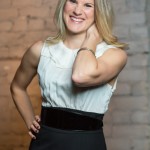
International speaker, personal development trainer and certified coach, Carol is on a mission to empower people to live BIG lives (how many folks can say they’ve lived in an Ashram, shaved their head, or bungee jumped in their birthday suit?) no matter what life throws at them.
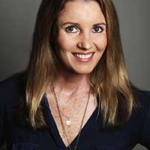
Christy Lemire is a longtime film critic who was the film critic for The Associated Press for nearly 15 years and co-hosted the public television series “Ebert Presents At the Movies” opposite Ignatiy Vishnevetsky, with Roger Ebert serving as managing editor.
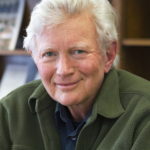
Peter Gray Ph.D. is a research professor at Boston College. He is also is author of Free to Learn (Basic Books) and Psychology (Worth Publishers, a college textbook now in its 8th edition).
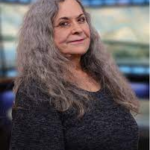
Linda Cook is a digital multimedia journalist/film critic, who worked 35 years at a newspaper before joining the Local 4 team in August 2020.

Christy Lemire is a longtime film critic who was the film critic for The Associated Press for nearly 15 years and co-hosted the public television series “Ebert Presents At the Movies” opposite Ignatiy Vishnevetsky, with Roger Ebert serving as managing editor.

Dr. William Li is a world-renowned physician, scientist, and New York Times bestselling author, best known for his role as President and Medical Director of the Angiogenesis Foundation.

Vicky Stergiopoulos is a Clinician Scientist at the Centre for Addiction and Mental Health and a Professor in the Department of Psychiatry at the University of Toronto.
